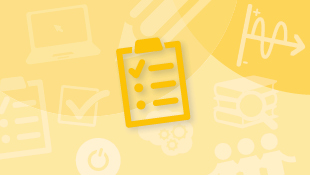-
Courses

Courses
Choosing a course is one of the most important decisions you'll ever make! View our courses and see what our students and lecturers have to say about the courses you are interested in at the links below.
-
University Life

University Life
Each year more than 4,000 choose University of Galway as their University of choice. Find out what life at University of Galway is all about here.
-
About University of Galway

About University of Galway
Since 1845, University of Galway has been sharing the highest quality teaching and research with Ireland and the world. Find out what makes our University so special – from our distinguished history to the latest news and campus developments.
-
Colleges & Schools

Colleges & Schools
University of Galway has earned international recognition as a research-led university with a commitment to top quality teaching across a range of key areas of expertise.
-
Research & Innovation

Research & Innovation
University of Galway’s vibrant research community take on some of the most pressing challenges of our times.
-
Business & Industry

Guiding Breakthrough Research at University of Galway
We explore and facilitate commercial opportunities for the research community at University of Galway, as well as facilitating industry partnership.
-
Alumni & Friends

Alumni & Friends
There are 128,000 University of Galway alumni worldwide. Stay connected to your alumni community! Join our social networks and update your details online.
-
Community Engagement

Community Engagement
At University of Galway, we believe that the best learning takes place when you apply what you learn in a real world context. That's why many of our courses include work placements or community projects.
Weekly Planning
Time-management is one of the most useful skills that you can develop as a student. Identifying how much study time is available to you, and making effective use of that time, is the key to staying on top of your workload and minimising stress.
Planners
Everyone has access to the same amount of time, but we use our time in very different ways. One way to use your time effectively is to plan your week in advance. A week-to-view diary, calendar or planner (hard copy or electronic) is invaluable for this purpose. Download our weekly planner template if you would like to experiment with planning your week.
Available time
Start by looking at your week ahead and block off times that are not available for study: this includes time in class, as well as time spent on sleeping, eating, paid work, leisure, housework, travel, family commitments, and so on. It is important to allocate time to these activities as well as to your studies.
With the time you have left, is it enough to allow you to start tackling the ‘A’ and ‘B’ tasks on your to-do list – that is, the most urgent or important tasks that you need to complete? See the Semester Planning section for more on this approach to prioritising tasks.
If not, are there ways for you to free up some additional time? For example, could you work less hours, pay a babysitter, buy a dishwasher, or cook and freeze your meals for the week ahead?
Multitasking
If you can’t free up any extra time, can you find ways to make better use of your time? For example, could you use some of the time that you spend travelling, exercising, or completing housework to brainstorm, to listen to a study-related podcast or audiobook, or to plan the structure of an upcoming piece of writing?
Chunking
One-hour, half-hour, or five-minute time slots can be productive. Don’t wait for a mythical ‘whole day’ to get started on a big task. That day may never come. Use your task analysis skills to break it down into smaller sub-tasks and make a start – any start – on one or more of these tasks.
Distractions
Limit distractions – your mobile phone in particular! Build phone time into your day (perhaps as a reward for a successfully completed task) and resist the urge to check for updates every few minutes. There are a number of apps you can download to block your access to social media on your phone if you find it difficult to resist the lure of Instagram or TikTok.
Procrastination
Procrastination (putting off until tomorrow what should be done today) is a problem for many students. The ‘symptoms’ of procrastination include:
- Chronic inability to complete tasks or meet deadlines
- Concentrating on less urgent tasks when a more pressing task is to hand
- Finding unproductive ways to pass your time when a deadline is looming
- Avoiding classes, meetings, e-mails, or anything that reminds you of the postponed task
- Blaming other people or external events for non-completion of tasks
- Pulling ‘all-nighters’ to complete an assignment or prepare for an exam
- Telling yourself or others that you work best under pressure
- Telling yourself or others that you need to be ‘in the mood’ or ‘in the zone’ to work well
If you think that procrastination is a problem for you, check out our guide to addressing procrastination for some ideas about possible causes of, and ways to tackle, this issue.

















